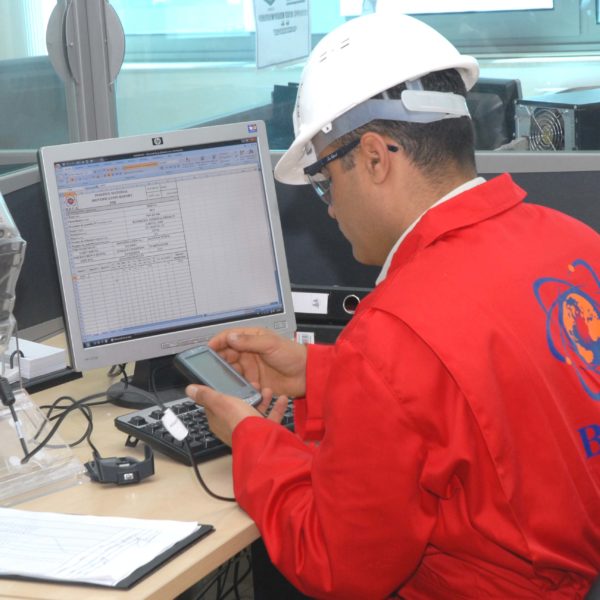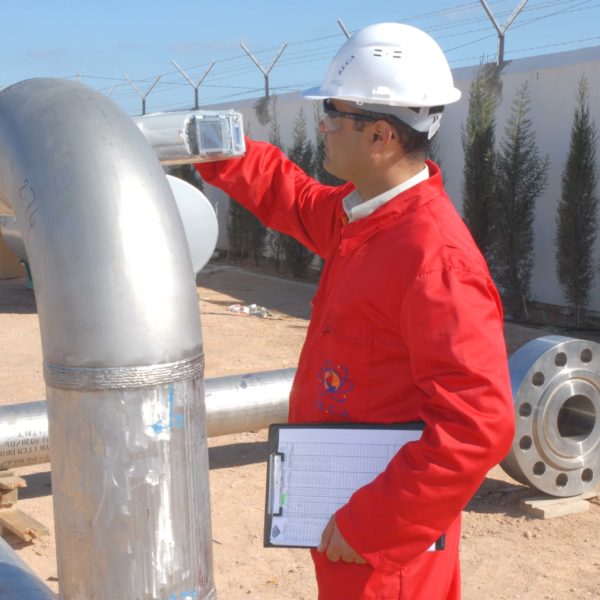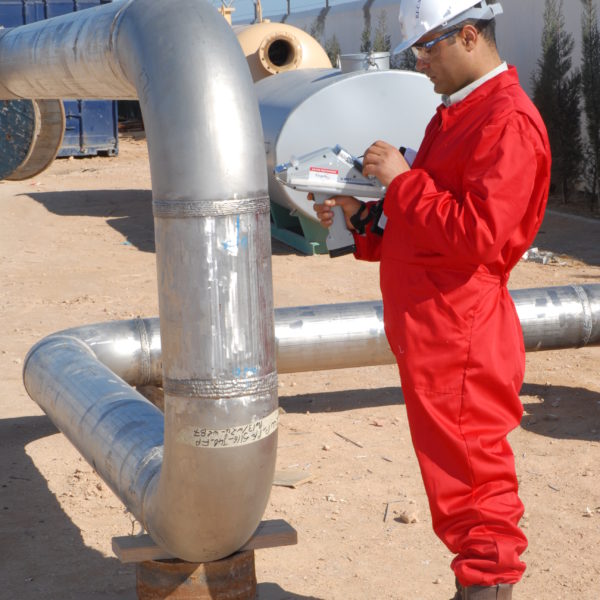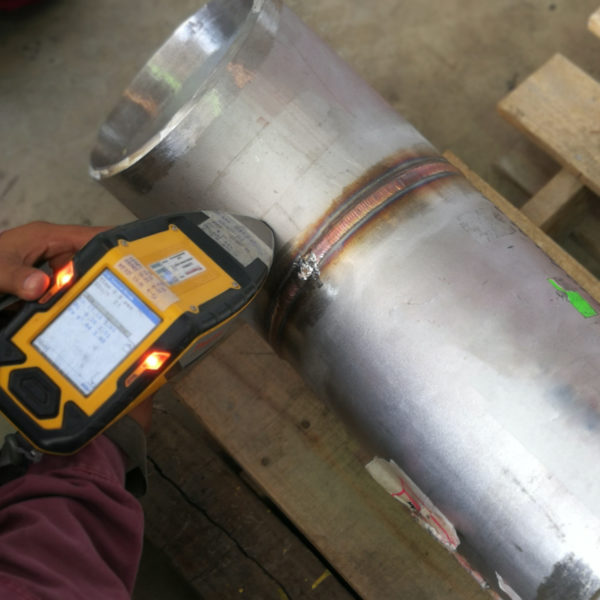Positive Material Identification (PMI) is a fast, non-destructive method used to verify the chemical composition of metals and alloys. It plays a critical role in ensuring that materials meet the required specifications before being placed into service.
Using portable XRF analyzers, PMI allows for rapid on-site testing of components and materials without the need to remove coatings or transport samples to a lab. While less comprehensive than full chemical analysis, PMI offers an efficient solution for confirming alloy types, identifying material batches, and re-certifying existing components — all without damaging the material.
This technique is widely used in quality control, safety compliance, and asset integrity programs across industries such as oil & gas, power generation, chemical processing, pharmaceuticals, nuclear, and aerospace.
Applications:
- Alloy verification in large material batches
- Inspection of critical piping, valves, and structural components
- Sorting and identification of mixed or undocumented metals
- On-site verification in shutdowns, turnarounds, or remote sites
- Re-certification of inventory during fabrication or repair
Laboratory positive material identification services
BECA can perform PMI testing in labs. Our experts can assist in identifying mixed batches of material, issuing alloy verification certifications and analyzing expensive or unique components without causing damage.
On-site PMI with portable XRF-analyzer
As part of our On-site Metallographic Analysis, BECA offers on-site PMI with a portable XRF-analyzer for identification of medium and high alloyed metals, such as stainless steels, nickel alloys, and copper alloys.
Our on-site PMI analysis services provide you with a rapid response to your material sorting requirements when shipping materials or parts to a laboratory is too slow or not possible.




